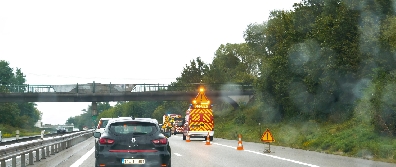Understanding Georgia's Dog Bite Laws
Georgia follows a modified "one-bite" rule, meaning that the owner of a dog that has bitten another person may not be liable for the dog bite unless they knew or should have known that their dog had aggressive tendencies. However, there isn’t just one single type of dog bite. Whether the owner knew about their dog’s violent tendencies, or whether the dog was improperly restrained are important factors in determining guilt and damages in dog bite cases.
Strict Liability Cases in Violation of Local Leash Laws
In Georgia, a dog owner can be held liable for a bite if the attack occurred while the dog was off-leash in violation of a city or county ordinance. If a local leash law requires dogs to be restrained and an owner fails to comply, the owner may be strictly liable for injuries caused by their dog—even if the dog had no prior history of aggression.
For example, if a dog is running loose in a public park without a leash and bites someone, the owner may be liable for failing to follow leash laws.
Similarly, if a dog escapes from an unfenced yard and attacks a neighbor, the owner may face liability for negligence in controlling the animal.
One-Bite Rule Cases (Owner Knowledge of Aggression)
Under Georgia’s one-bite rule, a dog owner is only liable if they knew or should have known that their dog was dangerous. This means that a victim must prove:
- The dog had a history of aggression, such as previous bites or attacks.
- The owner was aware of the dog’s dangerous behavior.
- The owner failed to properly restrain the dog, leading to the attack.
For example, if a dog previously bit someone or frequently lunged at people and the owner did not take precautions, they may be liable for a subsequent bite.
Negligence-Based Dog Bite Cases
In some cases, a dog bite victim may claim that the owner acted negligently. Even if the dog had no known history of aggression, an owner may still be responsible if they failed to take reasonable steps to prevent an attack.
Negligence-based cases may involve:
- Owners who allow children to interact with a dog known to be reactive.
- Owners who fail to secure their property, allowing a dog to escape and attack someone.
- Owners who let dogs roam free in an area where people are likely to be present.
Landlord Liability Cases
In some situations, a landlord may be held responsible for a tenant’s dangerous dog, especially if the landlord knew the dog was dangerous and allowed the tenant to keep it on the property, or the landlord failed to remove a dangerous dog despite complaints from neighbors.
However, landlords are typically not responsible unless they had actual knowledge of the dog's aggressive tendencies and had control over whether the dog remained on the property.
Worker or Service Provider Attacks (Postal Workers, Delivery Drivers, Contractors)
Dog bites involving service workers, such as mail carriers, delivery drivers, or contractors, are common. If a dog owner fails to restrain their pet when they know a worker is entering the property, they may be liable for injuries as part of a premesis liability case.
Child Victim Dog Bite Cases
Children are often more vulnerable to severe injuries in dog bite attacks. If a child is bitten, the court may consider factors such as:
- Whether the owner failed to restrain the dog in an area where children were present.
- Whether the child provoked the dog (though Georgia law often provides more protection for child victims).
- Whether the dog was known to be aggressive around children.
Because children cannot always recognize warning signs from animals, Georgia law tends to offer them stronger protections in personal injury claims.
Overview of Liability
In summary, an owner may be found guilty of negligence and be required to pay damages if the following conditions apply:
- The dog was vicious or dangerous.
- The owner knew of the danger and negligently failed to leash or contain the dog. Some local ordinances require dogs to be on a leash at all times. This means that any dog allowed off a leash outside the owner’s property may automatically be “dangerous.”
- The dog bite victim did not provoke an attack. This requirement typically applies only to adults; different rules apply to child victims.
Damages in a Dog Bite Personal Injury Case
A victim of a dog attack in Georgia may recover compensation for:
- Medical expenses (emergency care, surgery, physical therapy)
- Lost wages (if the injury prevents work)
- Pain and suffering
- Emotional trauma (especially for children who develop a fear of dogs)
- Funeral Expenses(in fatal bite cases)
- Permanent scarring or disfigurement
Hire an Attorney for Dog Bite Cases in Georgia
If you sustained serious injuries as the result of an animal attack, then a dog bite lawyer from our law firm may be able to help. Our attorneys can investigate and gather evidence, including eyewitness testimony and records of any previous violence associated with the dog. We can represent your case and fight to hold the dog owner accountable for your injuries, even if the dog has no history of viciousness.
We offer free initial consultations as well as contingency fee arrangements for all cases, nationwide. Call our Macon and Atlanta law office at 404-565-1621 or contact us online to speak to an attorney about your premises liability case.













Comments